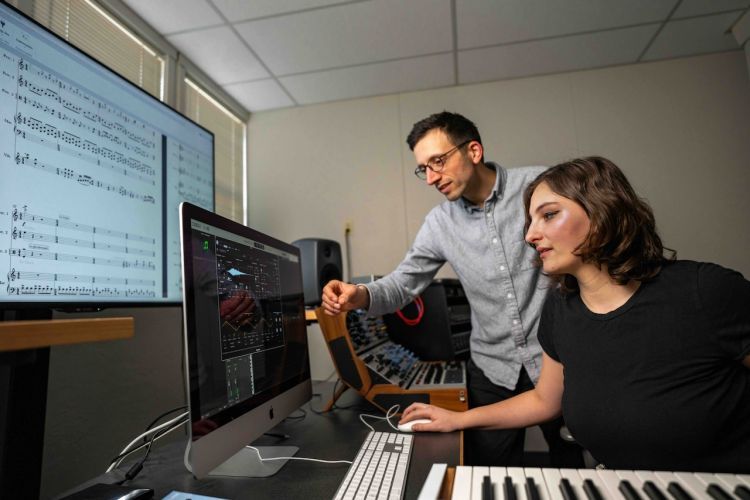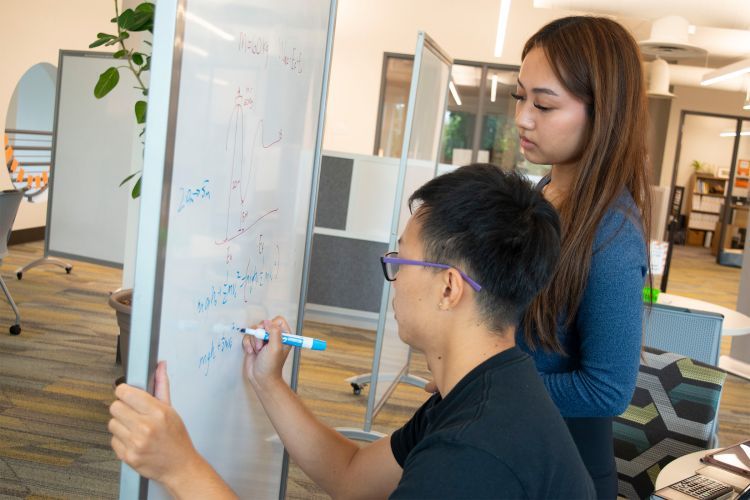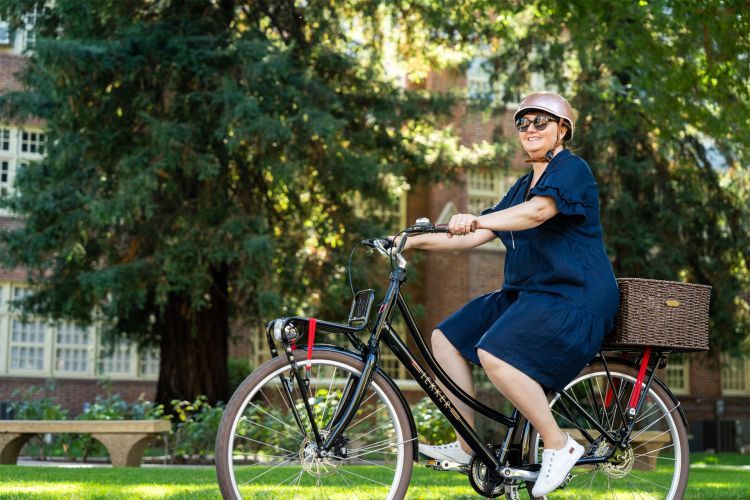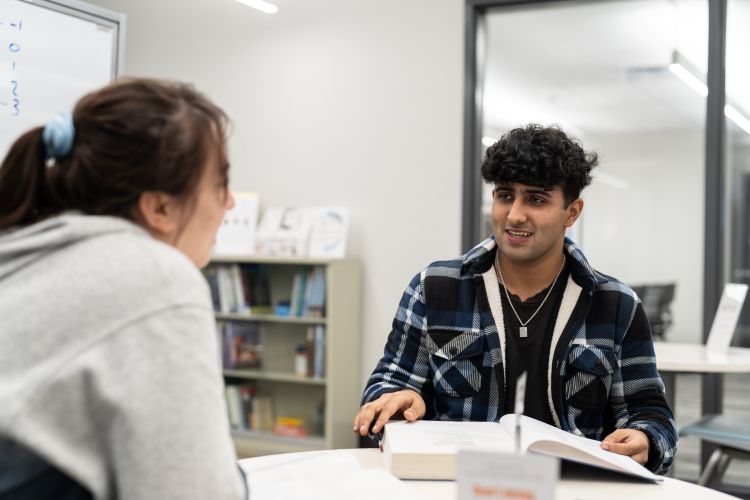Breadcrumb
Library resource program hits $2 million mark in student savings

Professor Andrew Conklin and Mary Denney '24
University of the Pacific students have saved more than $2 million in the past seven years by foregoing many traditional—and expensive—textbooks and instead using open educational resources.
These resources range from single lessons and videos to full textbooks. They are written or modified to more closely reflect what is being taught and are available free of charge.
All nine Pacific schools and colleges now have open educational resources users. The program, which includes stipends to help create resources, is led by the William Knox Holt Memorial Library and Learning Center on the Stockton Campus.
“I first started using this when I had a new class and there was not one good textbook,” said Ajna Rivera, associate professor of biology. “I received funding to write a short textbook, which I updated with case studies from students. I later used existing open educational resources to write another textbook. The program has become popular with faculty.”
Open educational resources started as a library pilot program in 2017 with funding provided by the Technology in Education Committee. Cumulatively, the university has awarded 121 stipends to 76 faculty. A total of 13,907 students have saved a combined $2.06 million.
It took five years for the program to exceed the $1 million dollar mark, but the second million was saved in less than two years, according to Michele Gibney, head of Publishing and Scholarship Support for the library.
“Faculty are enthusiastic since they know students have access to course materials, which are critical to their success,” said Provost and Vice President for Academic Affairs Gretchen Edwalds-Gilbert. “Many textbooks are expensive and students may have to prioritize the course materials they purchase or even share books. They do not need to worry about that with OER.”
ASuop, the student government body, has joined the work by establishing the Faculty Open Education Resources Champion Award.
“ASuop’s OER Committee is focused on recognizing existing educational resources and faculty members,” said Youyou Xu, Director of Academic Affairs. “These can be resources adapted by faculty members or they can be new creations. We have had submissions from many faculty.”
Rivera, the biology professor, and Meg Rosasco, a lecturer in the Department of Mathematics, were the first recipients of the award. Nominations are open for this year’s award.
Associate Professor of English Eric Sonstroem has made a profound impact through open educational resources with Core 2 classes, which each student must take. He received a stipend for a Core 2 textbook and students have saved $102,900 by using his text, which is specifically tailored to the classes.
“This to me is a great Pacific story,” Sonstroem said. “This is a student-forward effort that has made a huge difference in Core 2 for both students and faculty. There are two things students really hate. One is if they must pay a lot of money for a textbook. And the other is if they buy a textbook that is not utilized very much in the class. We have solved those issues.”
Niraj Chaudhary, dean of the library, is confident open educational resources—and savings—will continue their burgeoning growth.
“Surpassing $2 million in student savings through our OER program underscores our commitment to accessible and equitable education,” he said. “And it's more than cost-saving; it's about breaking down knowledge barriers to guarantee every student has the resources required for success.”
Several professors who utilize open educational resources in their classrooms and laboratories will take part in a panel discussion Thursday, March 21, from noon to 1 p.m. in the Yosemite Classroom (first floor of the library in Stockton) for “What’s My Research?”
Joining the discussion are Andrew Conklin (Composition and Music Theory), Michael Leonard (Art, Media and Performance Design), Sonstroem (English) and Benjamin Zeitlin (Biomedical Sciences).
“My OER effort is a digital textbook I wrote that is an anthology of musical examples. It takes the place of a textbook that previously cost students about $100,” said Conklin, assistant professor and program director of music composition. “One element of my text is the ability to project music onto the wall or screens. I am focusing on both savings and an improved learning experience for students.”
Learn more about Open Educational Resources





